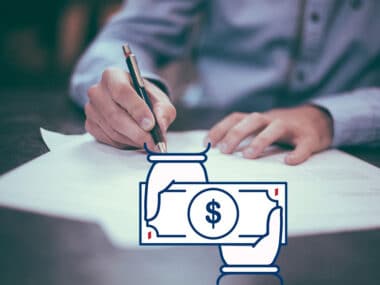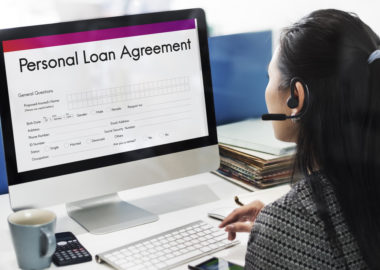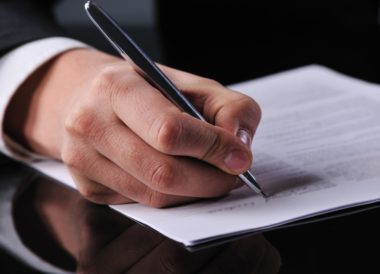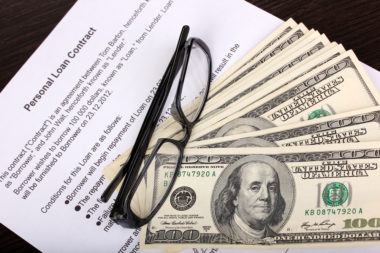An unsecured loan is a type of loan that is issued to a borrower based solely on the borrower’s creditworthiness. This differs from most secured loans, which are typically based on a borrower’s creditworthiness alongside the offering of collateral such as a car or home title.
Unsecured loans, also known as signature loans, are riskier for lenders because they don’t have the safety net of collateral that secured loans do if the borrower defaults on the loan. Because of this elevated risk, borrowers looking to take out an unsecured loan of any type typically need a higher credit score to be approved.
Additionally, interest rates may be much higher on these loans than on secured loans. If the borrower does default on the loan, the lender may hire a collections agency, and the borrower could be taken to court. Unsecured loans can be very flexible for all types of borrowers and borrower situations.
Table of Contents
Types of Unsecured Loans
There are several different types of unsecured loans or lines of credit that you may apply for. When looking for an unsecured loan, you’ll want to make sure that the loan you choose can meet your specific financial needs. These types of loans include:
- Unsecured personal loans — Unsecured personal loans are one of the most common types of personal loans. This may be because these loans are incredibly flexible and borrowers are able to use them for a large variety of expenses. Where other loans like a mortgage are fixed for one type of expense, you can put personal loan funds toward a variety of things, such as unexpected medical debt, or even budgeted expenses, like home improvement projects.
- Unsecured business loans — An unsecured business loan can be great for business owners starting a new venture, who don’t want to offer up personal collateral. If you already own a business, your business credit score may help determine your approval. If you are starting a new business, lenders will be relying on your personal credit score.
- Unsecured student loans — Many student loans are unsecured because students may lack qualifying assets for a secure loan. You can get unsecured student loans from the government or private lenders. The difference between these two lending bodies is how interest is determined — for government loans, Congress determines interest, while for private loans, your interest will be determined based on your borrower profile.
- Unsecured credit cards — An unsecured credit card typically has the same application process as an unsecured personal loan. The difference is in the distribution of funds. An unsecured credit card gives you revolving access to a certain amount of money, while a personal loan is a one-time lump sum.
Unsecured Loans vs Payday Loans
The requirements and application process of an unsecured loan and a payday loan may sound very similar, but there are differences between the two types of loans and the lenders who offer them. For starters, lenders who offer payday or other short-term borrowing loans typically don’t offer traditional secured loans, meaning they are generally a higher-risk lender. These types of lenders often work with high-risk borrowers and can be a port of call if you are denied service at other lenders.
Another difference between unsecured loans and payday loans is how you pay them back. Unsecured loans have a more traditional pay-off schedule. With an unsecured loan, you’ll make a payment of either the minimum or more over a period of time until you’ve paid off the loan, including any accrued interest.
Alternatively, payday loans require a postdated check or an automatic withdrawal agreement for a certain date to receive the full amount of the loan. It may be helpful to consider payday loans as a cash advance and unsecured loans as a more traditional type of loan.
Why Get an Unsecured Loan?
Unsecured loans can be a great option for someone who doesn’t have or doesn’t want to offer up collateral. They can be useful in emergency events, especially if your collateral options, such as your home or car, have been damaged in some way.
While these loans do tend to have higher than average interest rates, if you’re able to pay more than the minimum each month, an unsecured loan or line of credit can be a great option for you.
How to Get an Unsecured Loan
You can apply for an unsecured loan at several financial institutions, including banks, student loan servicers, and credit card companies. When you apply, the financial institution that you have applied through will run a credit inquiry on your current credit score to determine your approval.
If you don’t have a high enough credit score when applying for an unsecured loan, you may need a cosigner. A cosigner will be legally responsible for the payment of the loan should the principal borrower default on the loan.
If you apply with a cosigner, the financial institution will also have a credit inquiry run on the cosigner’s report. It’s important to make sure that cosigners are aware of what is and isn’t required of them before they cosign a loan so that there aren’t any unpleasant surprises.
Both secured and unsecured loans show up as debt on your credit report, and both require timely payments in order to avoid consequences. Neither is “good” or “bad,” they are simply different. What will help you decide on the right loan type for you is the assets at your disposal and your financial priorities and needs.
Image Source: https://depositphotos.com/





